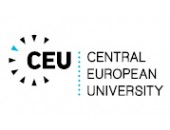Vision Document. Cultural hybridization in Europe.
Arturo Rodríguez Morató
Cultural diversity and cultural complexity has dramatically increased in Europe in recent times. Cultural hybridization is very important in this context as the relationship between diversity and creativity becomes crucial in assuring social cohesion and progress. However, assimilationist standards predominate in Europe, therefore the potential represented by this increased cultural diversity is not conveniently exploited. So, one central question arises: How can cosmopolitan scenarios of cultural hybridity in Europe be favoured? In order to clarify this question we consider different future scenarios and the challenges that they pose: current anti-cosmopolitan trends that promote hostility and rejection instead of cultural hybridization in European societies, the necessity of reinforcing and taking full advantage of the existing European cosmopolitanism, and the deficit represented due to the lack of a solid and coherent policy framework favouring cultural hybridization on the continent. Then we examine the factors influencing the possibility of cultural hybridization in general terms: the social and material conditions experienced by immigrants and people of immigrant background, the frames of cultural encounters, and the influence exerted by the field of cultural policy. Finally, we deduce key questions for research and action: in relation to the way cultural hybridization develops and contributes to cultural creativity, to the reasons as to why cultural hybridization processes are less effective in Europe than in other parts of the world, and to successful examples of cultural dialogue and artistic hybridization.








